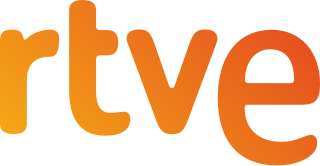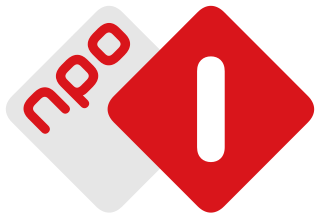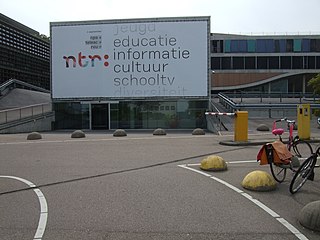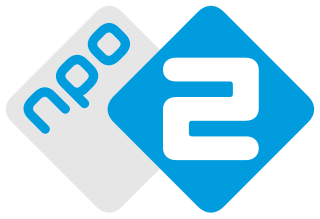
The Eurovision Song Contest 1968 was the 13th edition of the annual Eurovision Song Contest. It took place in London, United Kingdom, following the country's first victory at the 1967 contest with the song "Puppet on a String" by Sandie Shaw. Despite having won for the first time the year before, it was actually the third time that the United Kingdom had hosted the competition, having previously done so in 1960 and 1963, both of which also took place in London. Organised by the European Broadcasting Union (EBU) and host broadcaster British Broadcasting Corporation (BBC), the contest was held at Royal Albert Hall on 6 April 1968, and was hosted by Katie Boyle for the third time. It was notably also the first time that the contest was broadcast in colour.

The Eurovision Song Contest 1973 was the 18th edition of the annual Eurovision Song Contest. It took place in Luxembourg City, Luxembourg, following the country's victory at the 1972 contest with the song "Après toi" by Vicky Leandros. Organised by the European Broadcasting Union (EBU) and host broadcaster Compagnie Luxembourgeoise de Télédiffusion (CLT), the contest was held at the Grand Théâtre on 7 April 1973 and was hosted by German television presenter Helga Guitton.

The VPRO is a Dutch public broadcaster that is part of the Dutch public broadcasting system. It was founded in 1926 as a liberal Protestant radio station. In the 1950s and 1960s, it gradually became social liberal rather than Protestant, and the original meaning of the acronym was eventually dropped.
The Dutch public broadcasting system is a group of organizations that are responsible for public service television and radio broadcasting in the Netherlands. It is composed of the Nederlandse Publieke Omroep (NPO) foundation, which acts as its governing body, and a number of public broadcasters. The Dutch Media Act 2008 regulates how air time is divided and puts the administration of the public broadcasting system in the hands of the NPO Board of Directors.

The VRT is the national public-service broadcaster for the Flemish Community of Belgium.

The Corporación de Radio y Televisión Española, Sociedad Anónima, S. M. E., known as Radiotelevisión Española, is the state-owned public corporation that assumed in 2007 the indirect management of the Spanish public radio and television service known as Ente Público Radiotelevisión Española.

The Nederlandse Omroep Stichting is one of the broadcasting organisations making up the Dutch public broadcasting system. It has a special statutory obligation to make news and sports programmes for the three Dutch public television channels and the Dutch public radio services. It is funded by the Dutch government.

NPO 1 is the first national television station in the Netherlands. It launched on 2 October 1951. It provides public broadcasting and currently exists next to sister channels NPO 2 and NPO 3. Several broadcasting organisations of the Publieke Omroep deliver a wide variety of programs for the channel, usually for larger audiences. In 2018, it was the most viewed channel in the Netherlands, reaching a market share of 22.0%.

NPO 3 is the third and youngest of the terrestrial television channels operated by the Dutch public-broadcasting organization NPO in the Netherlands. It carries programmes provided by member-based non-profit broadcasting associations and is oriented towards children, youth, and innovative television.

NTR is a Dutch public-service broadcaster, supplying television and radio programming of an informational, educational, and cultural nature to the national public broadcasting system, Nederlandse Publieke Omroep (NPO). NTR was created in 2010, following the merger of the Nederlandse Programma Stichting (NPS) and two educational broadcasters, Televisie Academie (Teleac) and the Radio Volksuniversiteit (RVU). For details of these predecessor organizations, see further below.
The Omroepvereniging VARA, the VARA Broadcasting Association, was a Dutch public broadcasting association primarily operating in the fields of television, radio, publishing and interactive media. It was a member of Netherlands Public Broadcasting.

NPO 2 is a Dutch television channel, the sister channel of NPO 1 and NPO 3. It was established on 1 October 1964 at 20:00, initially with a 2.5-hour schedule until 22:30.

TROS, originally an acronym for Televisie Radio Omroep Stichting, was a Dutch television and radio organisation part of the Dutch public broadcasting system. This broadcasting association was particularly well known for its entertainment programmes, quizzes and focus on Dutch folk music in programmes like Tros Muziekfeest op het Plein and the digital channel TROS Sterren TV.

The Netherlands Institute for Sound & Vision is the cultural archive and a museum located in Hilversum. The Institute for Sound & Vision collects, looks after, and provides access to over 70% of the Dutch audio-visual heritage. In total, the collection of more than 750,000 hours of [television, radio, music and film that began in 1898 and continues to grow daily, makes Sound & Vision one of the largest audiovisual [archive]s in Europe. It was founded in 1997 as the Netherlands Audiovisual Archive, and adopted its current name in 2002. Its history, however, goes back to 1919, with the foundation of the Nederlandsch Centraal Filmarchief, being one of its precursors.
The Radio Télévision Suisse (RTS) is a Swiss public broadcasting organisation. Part of SRG SSR, RTS handles production and broadcasting of radio and television programming in French for Switzerland. It was created on 1 January 2010 by a merger of Radio suisse romande and Télévision suisse romande.

Media Park is a large business park in the Dutch city of Hilversum. This site is home to a number of Dutch broadcasters and media companies, and is the headquarters of the national public broadcasting system NPO.

NIROM was the privately funded territorial broadcaster of the Dutch East Indies. It was one of the precursors of Radio Republik Indonesia.

Radio Gelderland is a regional public radio station for the Dutch province of Gelderland. Its history started in 1965 when Gelderland joined the RONO. The RONO was already broadcasting for the north and east of the Netherlands. In 1977 RONO split into Radio Noord for Groningen and Drenthe, Radio Fryslân for Friesland and Radio Oost for Overijssel and Gelderland. Since 1985 Radio Gelderland is an independent broadcaster.

Niels Heithuis is a Dutch journalist and radio presenter. Currently, he hosts an investigative news show on NPO Radio 1 and weekend breakfast on classical radio NPO Radio 4. He won the 2008 Marconi Award, an industry prize for best radio program.
















